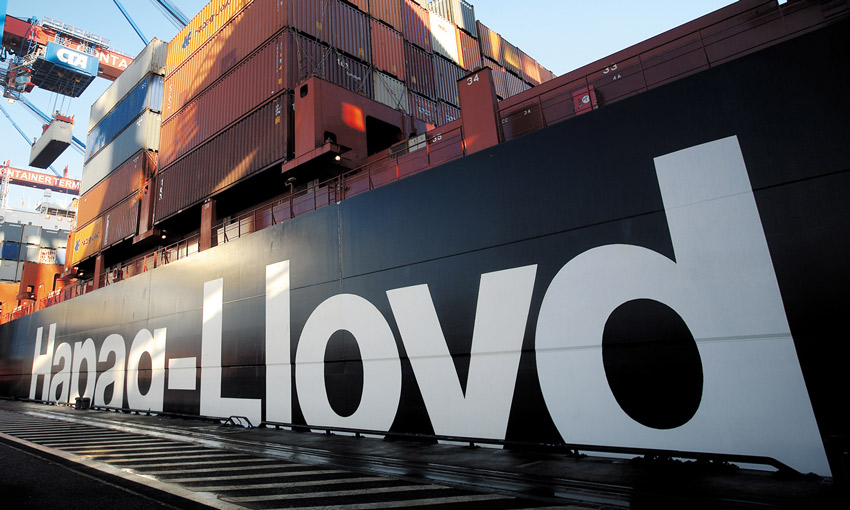HAPAG-Lloyd and Shell have signed a multi-year agreement for the supply of LNG for the shipping line’s ultra-large dual-fuel 23,500-TEU container vessels.
Bunkering for the 12 new vessels is expected to commence during the second half of 2023. LNG is to be supplied in the Port of Rotterdam.
Hapag-Lloyd said the ships would be deployed on Europe-Far East routes and call at major ports including Rotterdam, Hamburg, Singapore, and Shanghai.
The shipping line said using LNG enables it to immediately reduce the carbon-dioxide intensity of these vessels by up to 23% compared with conventional fuels. It said using LNG is a step towards reducing emissions and decarbonising its fleet in line with its goal of becoming net-zero carbon by 2045.
In addition to the LNG supply agreement, Shell and Hapag-Lloyd have entered into a strategic collaboration agreement intended to accelerate the further decarbonisation of alternative marine fuels.
Initial focus will be given to developing the potential of additional low-carbon fuels solutions including liquefied biomethane and the hydrogen-based fuel liquefied e-methane. Hapag-Lloyd said liquefied biomethane as a marine fuel has the potential to reduce greenhouse gas emissions by between 65% and 100%.
Hapag-Lloyd senior director global fuel purchasing Jan Christensen said the company was “excited” about its agreement with Shell to explore further decarbonisation opportunities.
“Collaborations like this are crucial in helping us deliver our sustainability strategy while also improving emissions in maritime shipping,” he said.
Shell general manager, head of downstream Tahir Faruqui said shipping decarbonisation must accelerate.
“As the lowest-carbon fuel available at scale today, LNG is a key part of the transition to lower-carbon marine fuels,” he said.
“As we look to the future, we are committed to working with leading shipping companies like Hapag-Lloyd to establish the credible pathways to net zero.”





